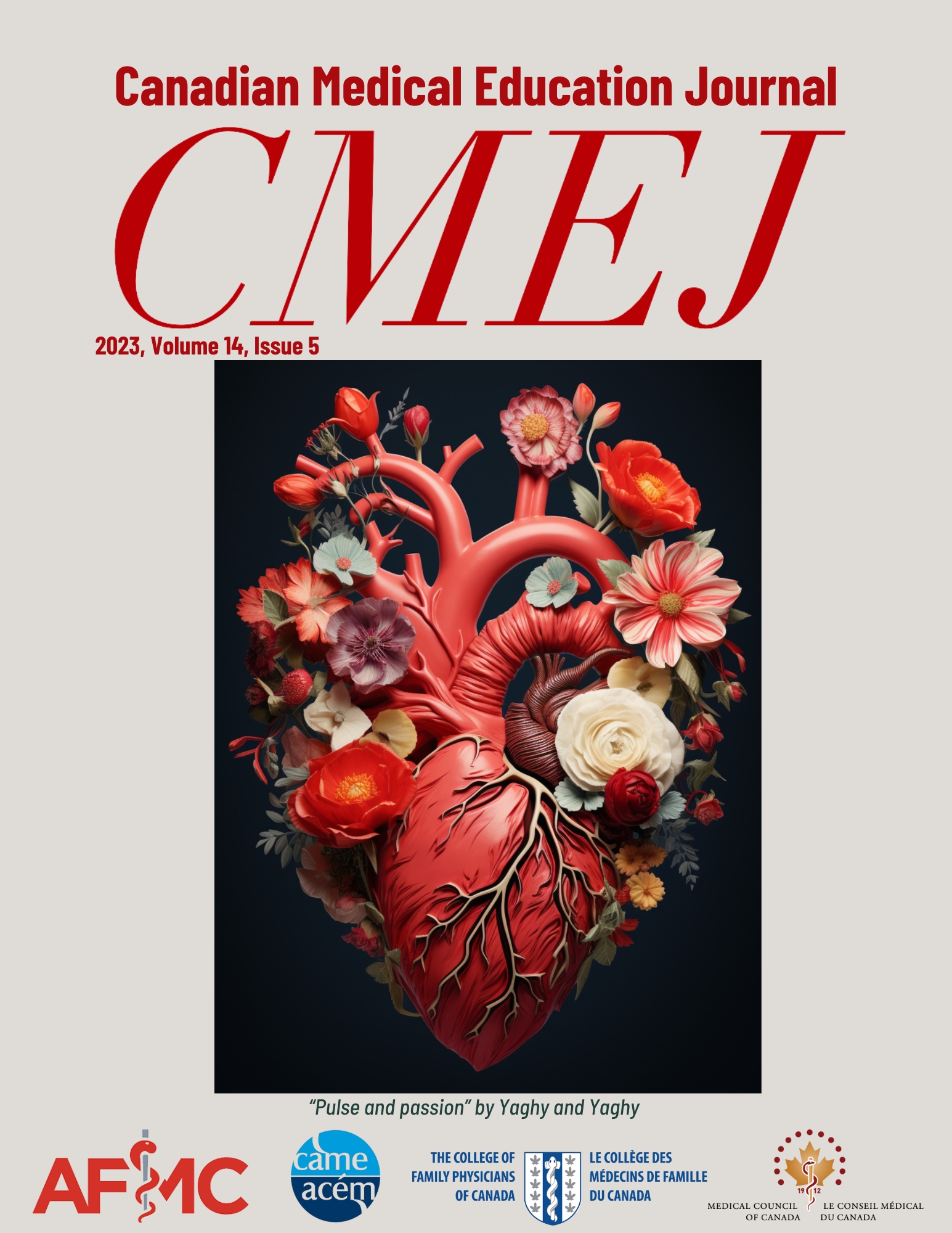Evaluation of a pre-professional pathway program: perspectives of former students in the rural pre-medicine program at Selkirk College
DOI:
https://doi.org/10.36834/cmej.76951Abstract
Background: Having a rural background is one of the most predictive factors in eventually having a rural practice, but people from rural areas face several barriers to post-secondary education. Pre-professional rural pathway initiatives are a potential solution. The Rural Pre-Medicine Program (RPM) at Selkirk College, British Columbia was developed to provide students with the credits necessary to apply to medicine and other health professional programs, an introduction to rural healthcare issues, and a unique and comprehensive support program to enable success.
Methods: We administered a cross-sectional survey to former students who left the program from its inception in September 2014 to May 2020 to explore the extent to which program aims are being met.
Results: The response rate was 49.4% (40/81). Respondents agreed the program increased their skills, their understanding of rural healthcare issues, and enhanced their competitiveness for applying to health professional programs. Most agreed the program increased their future rural work intentions. Respondents suggested that academic programming be more flexible to allow for more varied post-program pathways.
Conclusion: This survey provides preliminary evidence the RPM Program is on track to increase the number of people with a rural affinity who prepare to become health professionals.
References
Ogden J, Preston S, Partanen RL, Ostini R, Coxeter P. Recruiting and retaining general practitioners in rural practice: systematic review and meta‐analysis of rural pipeline effects. Med J Aust. 2020; 213(5):228–36. https://doi.org/10.5694/mja2.50697. DOI: https://doi.org/10.5694/mja2.50697
Asghari S, Kirkland M, Blackmore J, et al. A systematic review of reviews: recruitment and retention of rural family physicians. Can J Rural Med. 2020;25(1):20-30. https://doi.org/10.4103/CJRM.CJRM_4_19. DOI: https://doi.org/10.4103/CJRM.CJRM_4_19
Rourke J. Strategies to increase the enrolment of students of rural origin in medical school: recommendations from the Society of Rural Physicians of Canada. Can Med Assoc J. 2005; 172(1):62–5. DOI: https://doi.org/10.1503/cmaj.1040879
Whalen D, Harris C, Harty C, Green A., Faour E., Thomson K, Ravalia M. Should I apply to medical school? High school students and barriers to application. Canadian Journal of Rural Medicine. Can J Rural Med. 2016; 21(2):46-50. PMID: 26986684.
McEwen S, Larsen T, Lund E, Vanderhoek J. Supported rural pre-medicine: a descriptive evaluation of a novel undergraduate program’s first cohorts. Can Med Ed J 2021;12(6):114-6. https://doi.org/https://doi.org/10.36834/cmej.72358. DOI: https://doi.org/10.36834/cmej.72358
Crane M, Bauman A, Lloyd B, McGill B, Rissel C, Grunseit A. Applying pragmatic approaches to complex program evaluation: a case study of implementation of the New South Wales Get Healthy at Work program. Health Promot J Austr. 2019; 30(3):422–32. https://doi.org/10.1002/hpja.239. DOI: https://doi.org/10.1002/hpja.239
Kohn M, Senyak J. Sample Size Calculators [website]. UCSF CTSI. 2021. Available at https://sample-size.net/confidence-interval-proportion/ [Accessed on January 13, 2023]
Hsieh H-F, Shannon SE. Three approaches to qualitative content analysis. Qual Health Res. 2005; 15(9):1277-1288 https://doi.org/10.1177/1049732305276687. DOI: https://doi.org/10.1177/1049732305276687
Smith T, Cross M, Waller S, Chambers H, Farthing A, Barraclough F, et al. Ruralization of students’ horizons: insights into Australian health professional students’ rural and remote placements. J Multidiscip Healthc. 2018;11:85–97. https://doi.org/10.2147/JMDH.S150623. DOI: https://doi.org/10.2147/JMDH.S150623
Hogenbirk JC, Strasser RP, French MG. Ten years of graduates: a cross-sectional study of the practice location of doctors trained at a socially accountable medical school. PLoS One. 2022;17(9):e0274499. https://doi.org/10.1371/journal.pone.0274499. DOI: https://doi.org/10.1371/journal.pone.0274499
Wheat JR, Leeper JD. Pipeline programs can support reforms in medical education: a cohort study of Alabama’s rural health leaders pipeline to engage community leaders. J Rural Health. 2021;37(4):745–54. https://doi.org/10.1111/jrh.12531. DOI: https://doi.org/10.1111/jrh.12531
Downloads
Published
Issue
Section
License
Copyright (c) 2023 Sara McEwen, Jonathan Vanderhoek, Takaia Larsen

This work is licensed under a Creative Commons Attribution-NonCommercial-NoDerivatives 4.0 International License.
Submission of an original manuscript to the Canadian Medical Education Journal will be taken to mean that it represents original work not previously published, that it is not being considered elsewhere for publication. If accepted for publication, it will be published online and it will not be published elsewhere in the same form, for commercial purposes, in any language, without the consent of the publisher.
Authors who publish in the Canadian Medical Education Journal agree to release their articles under the Creative Commons Attribution-Noncommercial-No Derivative Works 4.0 Canada Licence. This licence allows anyone to copy and distribute the article for non-commercial purposes provided that appropriate attribution is given. For details of the rights an author grants users of their work, please see the licence summary and the full licence.











